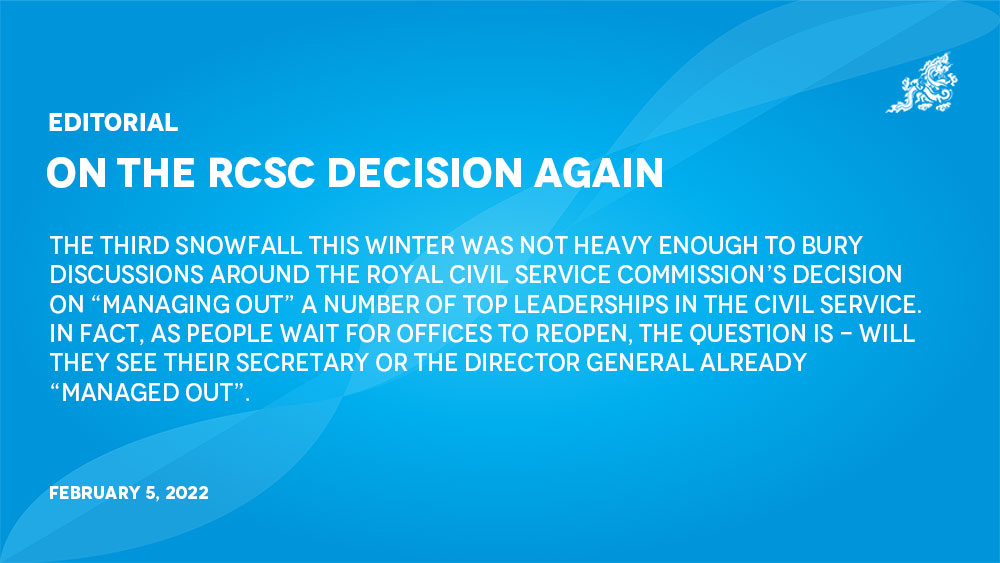The third snowfall this winter was not heavy enough to bury discussions around the Royal Civil Service Commission’s decision on “managing out” a number of top leaderships in the civil service. In fact, as people wait for offices to reopen, the question is – will they see their secretary or the director general already “managed out”.
The feedback or comments, at least on social media groups, on the decision is, not encouraging, if not nasty. For whatever reasons, many felt they deserved it. The overall feeling, however, is that the decision was timely. Timely in the sense of a major shake up in the civil service. Those still reflecting on the decision have many questions- Why now? What will happen? How are the assessments done? How transparent are the assessments?
The answers will come as times go by. This is not a one-time assessment. Next in line are civil servants at the director level. Some are already being assessed and awaiting the results. Assessing leaders in the civil service and even in other public organisations will be an ongoing process. The plan is to extend it to other Constitutional offices.
Major decisions whether in civil service or overall governance takes time to sink in. We are talking about change in leadership in the biggest organisation- the bureaucracy- in the country. Looking beyond the current decision and the individuals affected, it is an answer to the call for change. It is result of re-examining the bureaucracy “to make them able to shoulder the responsibilities mandated by the Constitution, live up to the trust and confidence reposed by the Throne, and meet the hopes and aspirations placed by the government and people.”
The civil service, as the biggest and an important organisation received clear Royal guidance sometimes even pinpointing to details like ratio of civil servants to the number they are serving, the percent of services wasted by one agency on another and the lack of coherence and direction. The change is not a surprise, it was late knowing that it was called for years ago.
Civil servants are at the receiving end these days. What is important is not generalising all civil servants as non-performers. In fact, there are some who work more than those in the private sector. There are those who feel the need for change, but have no authority. Feedback system is a strange culture both among those providing or receiving. The current exercise should encourage them to bring in more changes.
Top executives in the public corporations, for instance, have a fixed term. Their reappointments are based on performance and leadership. The elected government has to perform. Their performance is judged by the electorate every five years. If they fail, the mandate is given to a new government.


